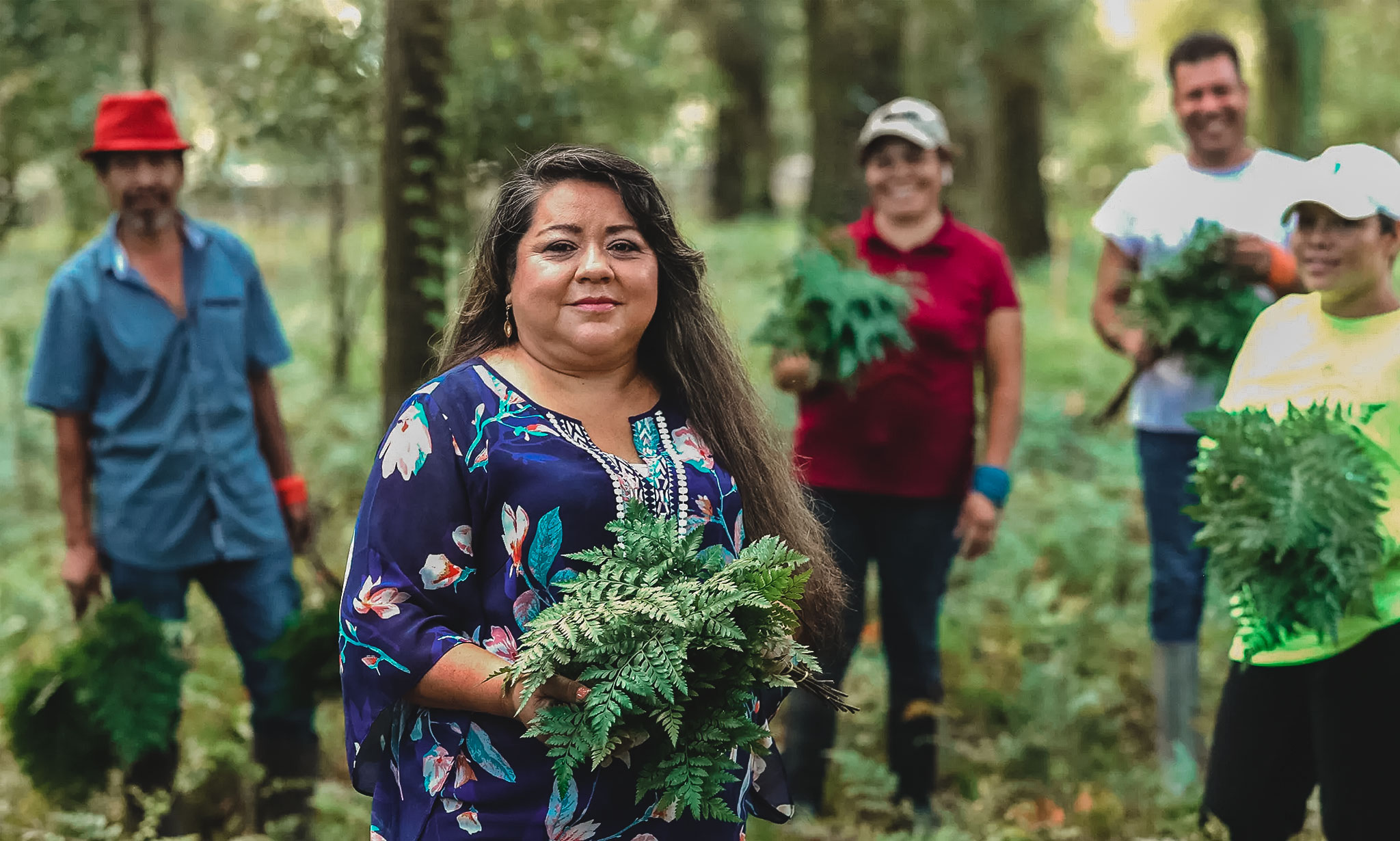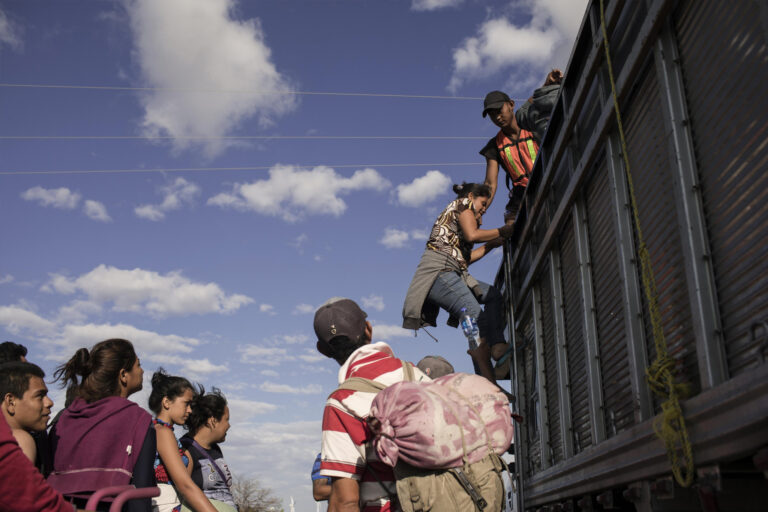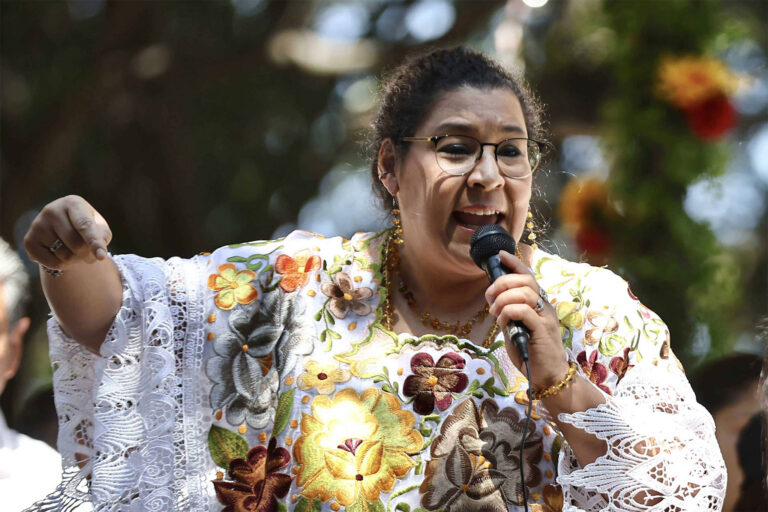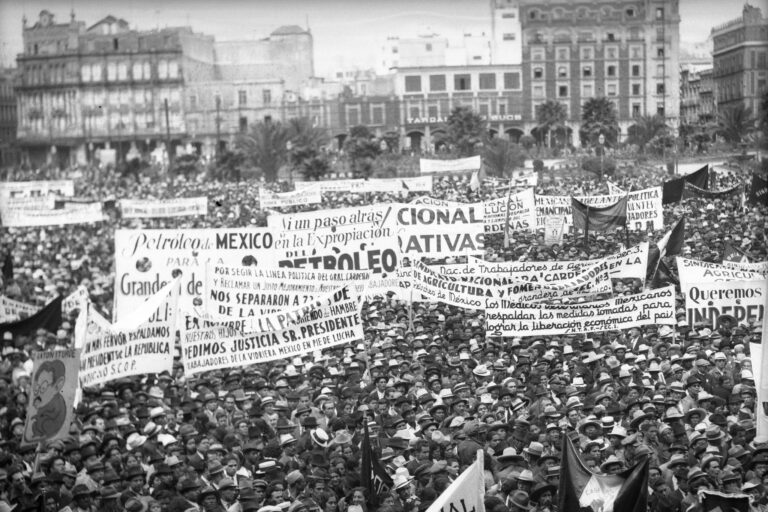Marked by Violence, Promoting Peace
Asking for peace is dangerous, especially if it’s for a peace that means ending the violence enforcing injustice and exploitation. If you dare to speak out against that violence, you yourself will be subject to threat, attack, arrest — even murder. Maria Elena Valdivia found that out at an early age.
Business as usual, whether in an autocracy or a western “democracy,” requires force to maintain the social and economic hierarchy; the sacred business of making money will not tolerate any challenge. And the use of violence trickles down. Poor people — parents, pimps, gangs — sometimes resort to inflicting pain on their own families and neighbors in order to survive themselves.
But there are always those who risk their own safety to protect others, as Maria Elena did in Mexico and Florida. Her kind of courage, when multiplied, can counter the possibility of violence being used against us. We witnessed it when millions of US residents marched in the “No Kings” protest to end ICE’s brutal abduction of immigrants and all other abuses of power. Wannabe tough guy Trump threatened “big force” against protesters, and he had the Marines, the National Guard, ICE and the police gussied up in full military gear, ready to beat the public into submission. But to violently attack joyful, creative crowds who showed up unarmed (except for signs that hit him where it hurts — in his ego) would have been a public relations disaster.
That peaceful demonstration of people power deserves celebrating. But we must also celebrate the changemakers who take risks, who extend their hands with compassion and love to oppressed people, who organize for an end to violence. Like Maria Elena.
After working herself as a fern cutter in Central Florida, Mexican migrant Maria Elena Valdivia honed her advocacy skills with the Catholic diocese in Wyoming. When she returned to Florida, she was selected by farmworkers to lead the Farmworker Association in Pierson, Florida. She then founded the Migrants and Minorities Alliance and provides a YouTube platform for migrant voices, Luces y Sombras Migrantes, or “Migrant Lights and Shadows.”
In 2022, someone threatened to kill you. Who was it?
In 1994, when I came to Florida illegally from Mexico, I worked as a fern cutter with my brother and sister, so I know the hardships that migrant farmworkers endure. But years later I met farmworkers with H-2A temporary visas and learned that they worked under worse conditions than those here illegally!
I started advocating for them, going to the growers, going to the Mexican consulate, going to the Department of Labor. In 2022, I began getting threats. A group of about 30 workers told me that they weren’t being paid and were lied to about a visa extension. Some decided not to complain, but 22 gave me the details of their mistreatment so I could inform the Department of Labor. They also said that their recruiter ordered them not to come back and see me.
So I started looking for him.
One day, I went to a restaurant where farmworkers ate to give them information about COVID. This big tall guy in a sombrero and boots stood up and came over to me. He got in my face, yelling, “You stay away from these guys.” I didn’t back down. I said, “I’m here about COVID!” I still didn’t know who he was.
Later I was in a long line at the motor registration department, and that same guy was in line. I was on my phone, and he started yelling, “Stop recording me!” I answered “Why would I be recording an asshole like you?” He told me his name — he was the guy I’d been looking for! In front of everyone, he said, “Just beware, people have been found dead on the farms.”
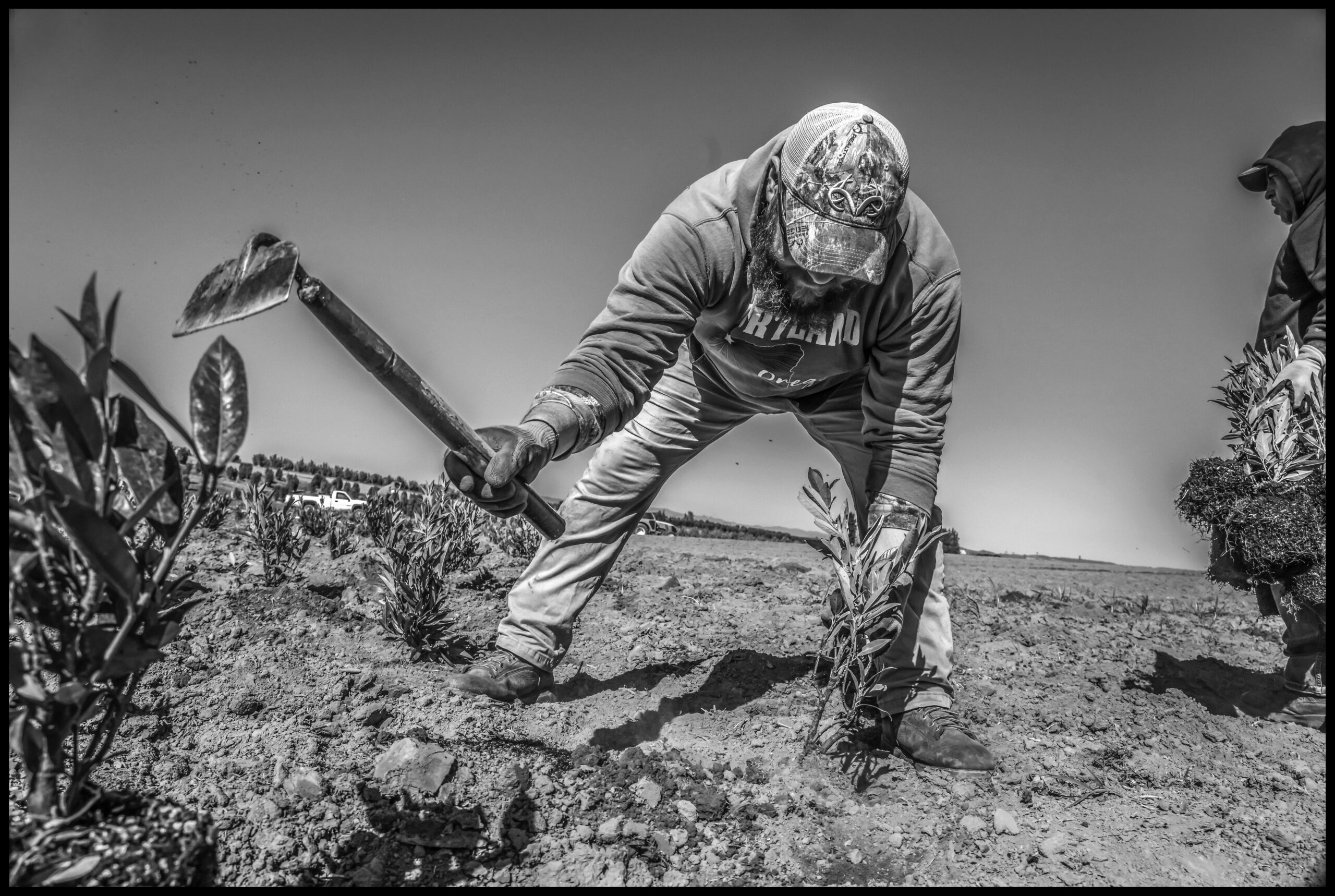
So this wasn’t the employer, it was the recruiter! Where did he fit in to the H-2A system?
The growers hire recruiting agencies as their middlemen. These guys go to towns in Mexico and sign people up. The Mexicans have to pay up to 60,000 pesos, around $3000 or more, to get a contract with a grower. But if the worker can’t make enough to pay back the recruiter, they might overstay their visas. If they do go home but still owe money, the guys they borrowed it from to get the visas threaten their families. In some cases, families have lost their homes.
An H-2A contract is with a single company. Workers aren’t allowed to work for anyone else and must return home after the harvest season. They are open to abuse by the employers, who often force them to work overtime. The work is hot and backbreaking, and sometimes the employers don’t even pay them or don’t pay them by the hour. A manager can say, “You didn’t do too much today, so we’re only going to pay you a little.”
If they complain, they can be sent home and blacklisted. The recruiters call them “snitches,” and they can’t get another H-2A job. It’s not surprising so much abuse goes unreported.
Another reason many workers become illegal is that when they finish at the place they are contracted to, the recruiter lets their visa expire with promises of another job and sends them illegally to another farm. When workers are caught, they’re the ones in trouble. But the recruiter is always risk-free and makes money from both employer and worker, crossing the border freely.
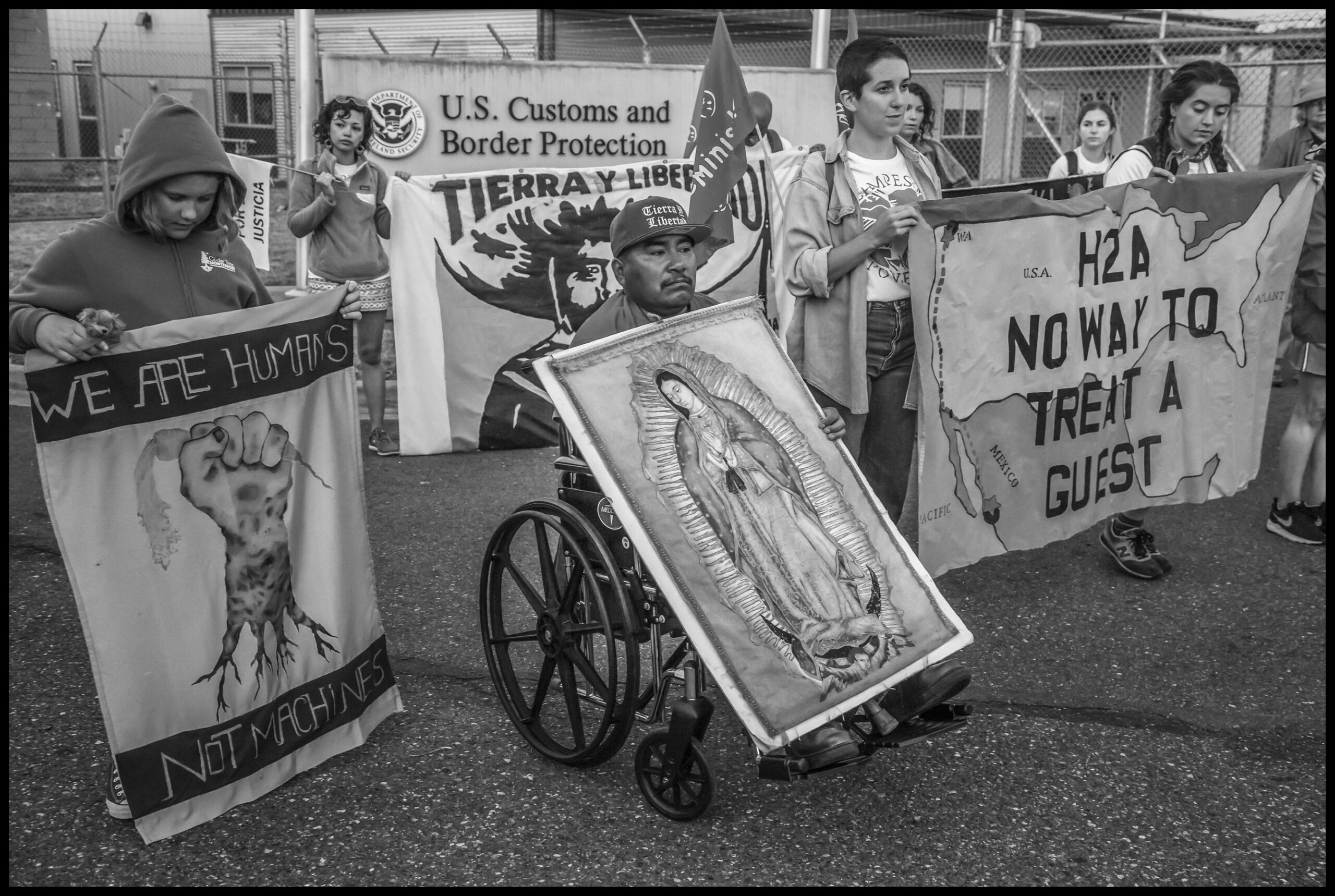
But don’t workers at least have the right not to be murdered or beaten up?! Did any of them get help from the Mexican consulate?
Worse than no help. We collected the stories of over 30 fern workers. But at the Orlando Florida Consulate’s Department of Protection, one of the staff was also working as a recruiter himself! What a joke. Their solution — if the worker is having a problem, we’ll send him home! It’s no secret that Florida’s governor, Ron DeSantis, hates migrants. But the two consulates here say, “We can collaborate with ICE.” How are they representing us?
When AMLO was president, I didn’t like him calling us migrants “heroes.” He was just pleasing my ear and did nothing to protect us. In fact, he cut the budget for the consulates and left the same people from the PRI to run them.
We also went to the US Department of Labor with documented evidence that the recruiter brought people here to work illegally and also of the abuse migrants suffered. We still didn’t get justice. The only person to help us was the bishop of the Catholic Church; he intervened and got the growers to at least pay their workers.
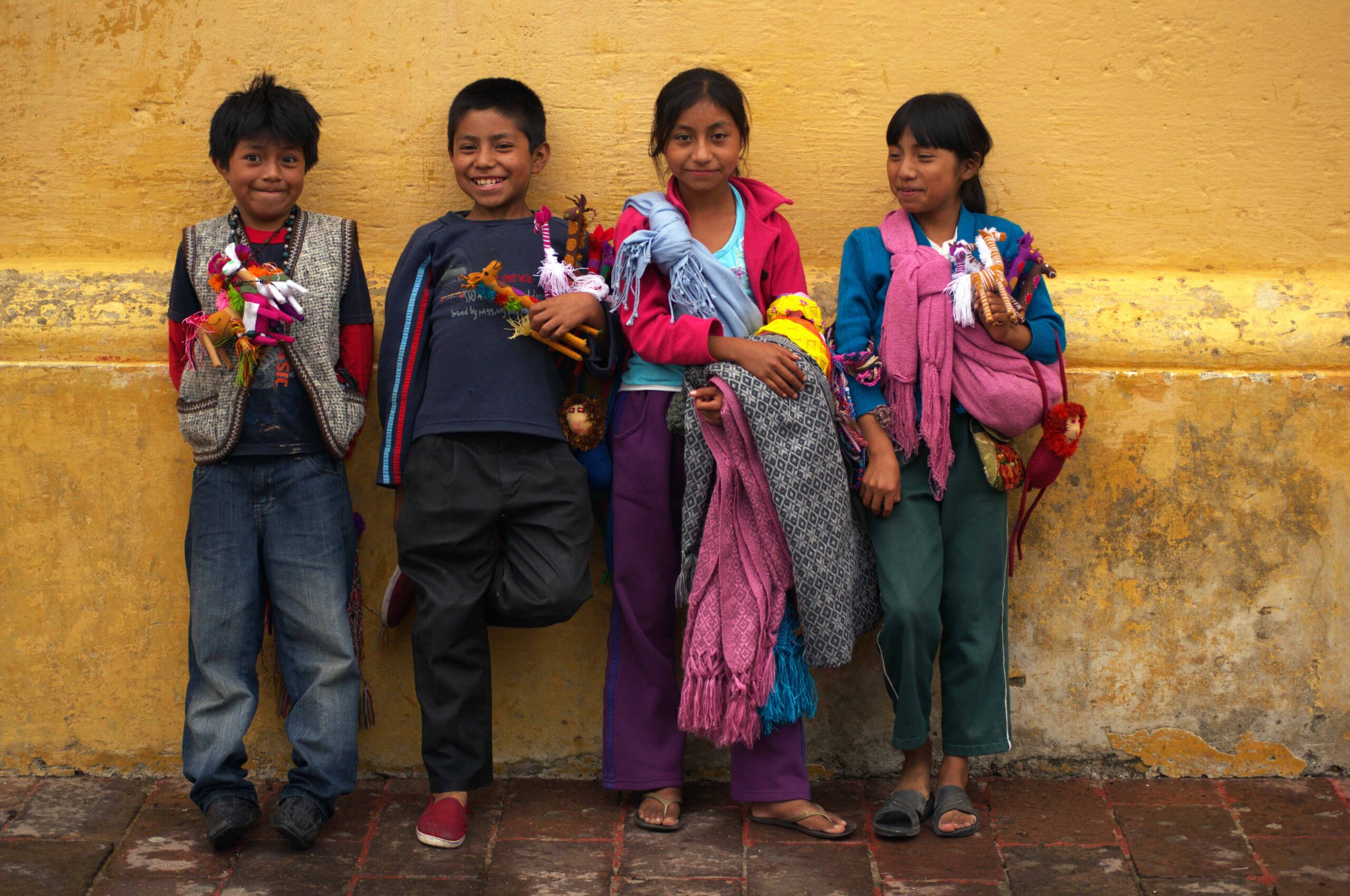
You were a migrant farmworker yourself. Why did you leave your home and come to the US?
I grew up on the street. At eight, my parents put me out to work selling fruit cocktail, snow cones and candy. I saw older kids abuse younger ones; I saw kids get addicted to alcohol. I saw how parents were exploiting their own kids. So as a teen, I collected toys and distributed them. Then I started to complain to the authorities about conditions for these kids. At 20, I met my husband, and the two of us worked together to help the street kids.
Not everyone appreciated what we were doing; the parents didn’t want us interfering. We were threatened more than once. When I was pregnant with my second child, my husband was murdered. Then, not long after my baby was born, I was working as a cook, and when I came out of the building, someone grabbed me and pushed me into an apartment and assaulted me. When I got away, I called my brother — thank goodness he picked up the phone. He was already in Florida, and he said, “You have to come here right away.”
Within two days, I made my way to Piedra Negras where I crossed the Rio Grande at night with my two children. I had no idea what I would find on the other side — but I had my dreams.
That’s how I became a fern cutter, and that’s why my life is about ending violence.
I don’t organize and advocate for migrants as a paid job; I don’t want people thinking that I do it for the pay.
What gives you the courage and determination to keep fighting?
I’m sickened at seeing people abused, especially children. It’s in my nature to stand up for all of us. The solution is for many more of us, and more and more of us, to come together, since it’s being in community that gives us courage. That’s why I became the organizer for the Fern Workers Association. But we need a union, not just an association. Florida doesn’t allow farmworkers to unionize, so we do the best we can.
When it comes to the H-2A program, it’s clearly just legal human trafficking. The US government wants to expand it, as if being “legal” is the answer to migration. We need to cut out the middlemen who are allowed to victimize thousands of H-2A workers every year. We need work certification that doesn’t let one employer own us. I’m fighting for policies that end physical and economic violence, that support the human right for migrants to live in dignity and peace.
-
Let’s Talk About Migration: Trumpist Persection
Millions of women who have endured unspeakable violence on their migration journey are now being persecuted in the United States by an extremely xenophobic and misogynistic government, led by Donald Trump,
-
Genocidal & Extractive Capitalism
This week, the United States claimed to be negotiating to avoid war with Iran. It was merely a cover for a new attack. Where are the efforts to stop it?, asks Mexican Supreme Court Minister Lenia Batres.
-
Trump Will Not Take Our Oil
Venezuela’s oil belongs to the Bolivarian Republic. Mexican oil belongs to the people of Mexico. If the current administration decides to trade it with Cuba or any other country, it has every right to do so. Mexican oil does not belong to the US nor to Donald Trump.

